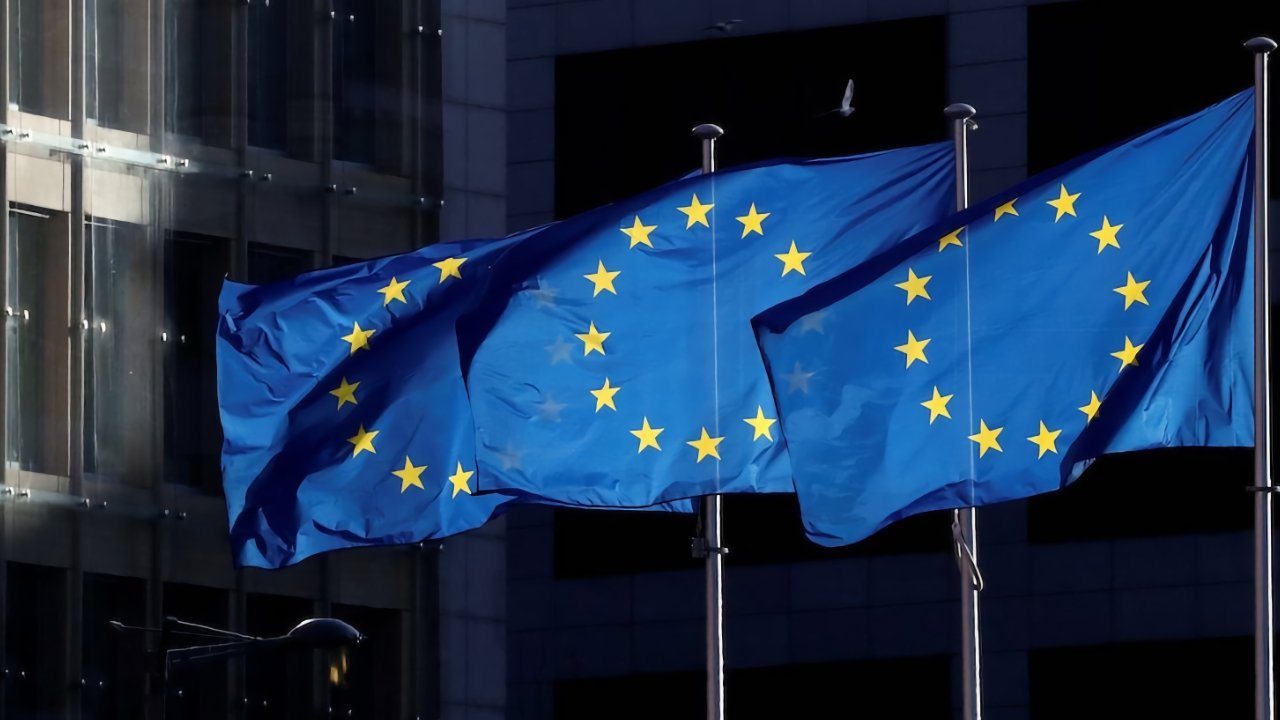Apple, Google attack EU's Big Tech regulatory proposals
The European Union's new Digital Markets Act has been responded to by both Apple and Google, with each company saying the regulation would impose limits on their ability to innovate.

Flag of the European Union
Following the EU's publication of its full Digital Markets Act proposal, the two companies most clearly affected have both spoken out against the planned legislation.
According to ABC News, Apple believes the DMA plans present a risk to security.
"[Parts of the DMA] will create unnecessary privacy and security vulnerabilities for our users," said an Apple spokesperson. "Others will prohibit us from charging for intellectual property in which we invest a great deal."
Google says it intends to work with the EU regulators on the implementation of the proposals.
"We support many of the DMA's ambitions around consumer choice and interoperability," said a Google spokesperson. "We remain concerned that some of the rules could reduce innovation and the choice available to Europeans."
Amazon is also potentially affected by the proposals and told ABC News that it was presently reviewing what the rules could mean for its customers.
The rules, which apply to "gatekeeper" firms, defined as those that earn more than $8 billion a year, that run major services such as social media platforms. The Digital Markets Act includes requirements that could see the companies having to radically change their businesses.
Specifically, Apple would be required to allow sideloading of apps onto iPhones via alternative App Stores. It would also have to allow alternative payment methods alongside its own in-app purchase system, all of which Apple has objected to on security grounds
Read on AppleInsider

Flag of the European Union
Following the EU's publication of its full Digital Markets Act proposal, the two companies most clearly affected have both spoken out against the planned legislation.
According to ABC News, Apple believes the DMA plans present a risk to security.
"[Parts of the DMA] will create unnecessary privacy and security vulnerabilities for our users," said an Apple spokesperson. "Others will prohibit us from charging for intellectual property in which we invest a great deal."
Google says it intends to work with the EU regulators on the implementation of the proposals.
"We support many of the DMA's ambitions around consumer choice and interoperability," said a Google spokesperson. "We remain concerned that some of the rules could reduce innovation and the choice available to Europeans."
Amazon is also potentially affected by the proposals and told ABC News that it was presently reviewing what the rules could mean for its customers.
The rules, which apply to "gatekeeper" firms, defined as those that earn more than $8 billion a year, that run major services such as social media platforms. The Digital Markets Act includes requirements that could see the companies having to radically change their businesses.
Specifically, Apple would be required to allow sideloading of apps onto iPhones via alternative App Stores. It would also have to allow alternative payment methods alongside its own in-app purchase system, all of which Apple has objected to on security grounds
Read on AppleInsider

Comments
To all you EU viewers, what has the EU produced lately? Certainly not any mobile devices or computers. Why don't you just build your own phones? Because you can't? Before you try and tell companies from other countries how to run their businesses why don't you try and replace them with something better instead of telling us what to do.
If it was applied to everyone, it sounds like I should be able to go into Dominos, tell them I want to use the Pizza Hut app to pay, and that they provide me with a Papa John’s Pizza. I am not sure why the fact that these companies are large, or that the products are digital should change things.
I can’t go into Walmart and demand they take my Target Credit Card, or let me pay with my Target Wallet.
Can anyone that understands this better than I do help me understand what the EU is trying to do here?
The choice is made before I get to the App Store or Google Play. There is still a choice.
Oddly, their ideals don't apply to cars, many of which are made in Europe and contain operating systems for their infotainment systems. I would actually consider certain EU models of cars if I could replace the infotainment OS with something else. But that would affect big EU companies' ability to control their customers, so the EU won't apply the same rules to their own manufacturers' devices.
Apple, Google, Facebook, Huawei, Microsoft etc have a lot of R&D carried out in the EU.
As for what the EU has done, just take a look at healthcare, consumer protection, environmental safety, food safety etc and compare those aspects to those available in the US.
Without claiming everything is perfect here I have yet to know a single US citizen living in the EU who does not want to stay here.
Why would that be?
and to remove some apps (vpn apps) from Chinese market app store
apple has done this before, just like they added the charger for iPhones sold in France I believe
so this isn't something new
Pulling out wouldn't do a lot of good for its business and would allow for competitors, who are willing to comply with regulations, to sweep up its current users and attached revenue streams.
Apple and Google etc will protest and try to lobby and see what happens or maybe get creative.
How about an iPhone Max Security where potential users are required to explicitly sign acceptance of Apple's terms prior to purchase. That might allow them swerve some of the biggest issues here.
The problem is that I doubt many users would actually do that if there was a regular iPhone without limitations competing with it.
And competitors would have a marketing field day with that.